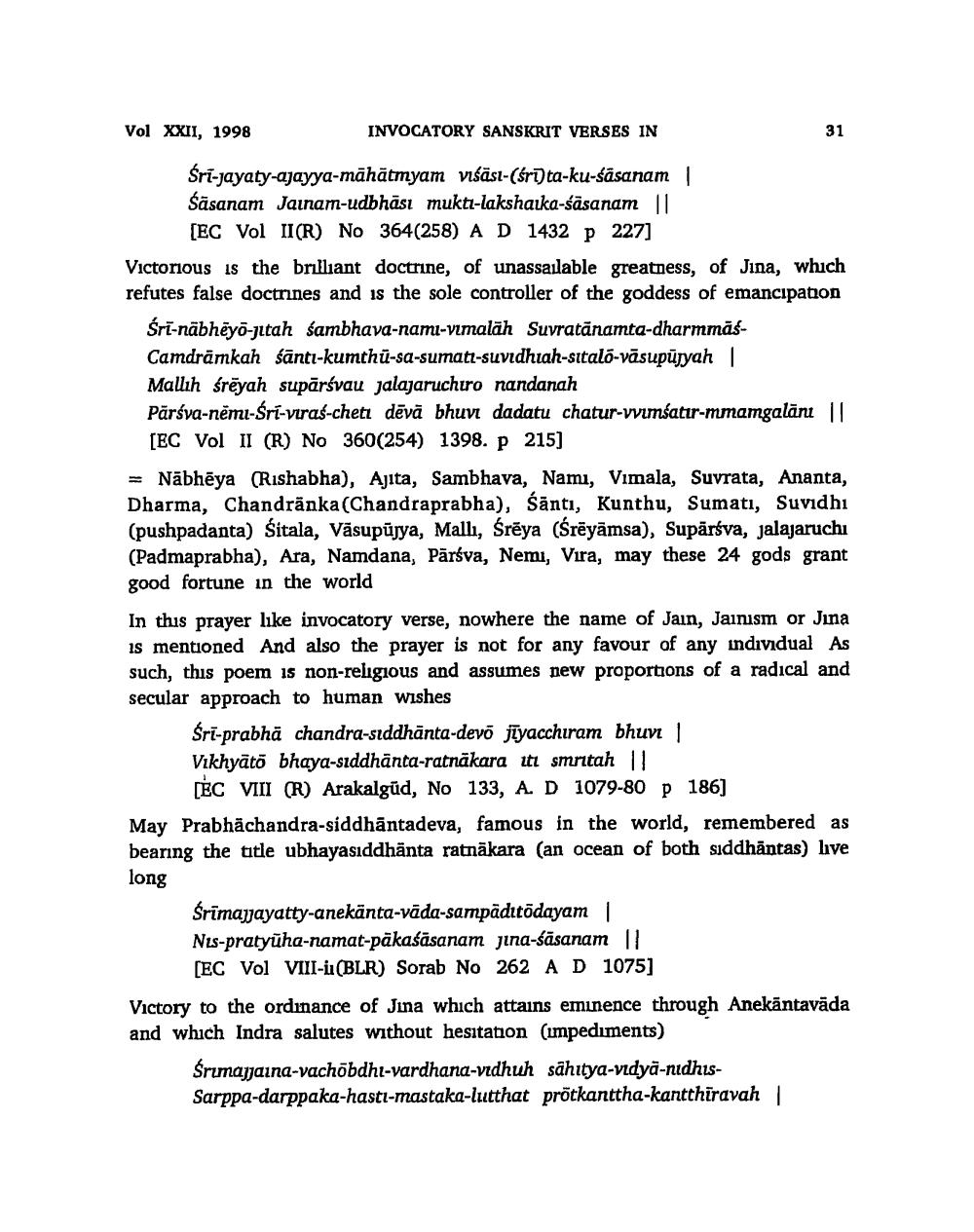________________
Vol XXII, 1998
INVOCATORY SANSKRIT VERSES IN
Śrī-jayaty-ajayya-māhātmyam visāsl-(śrī)ta-ku-säsanam Śäsanam Jainam-udbhäst mukti-lakshaika-śäsanam ||
[EC Vol II(R) No 364(258) A D 1432 p 227] Victorious is the brilliant doctrine, of unassailable greatness, of Jina, which refutes false doctrines and is the sole controller of the goddess of emancipation
Śri-nābh@yo-jitah sambhava-nami-vimalāh Suvratānamta-dharmmāsCamdrāmkah śānti-kumthū-sa-sumati-suvidhiah-sitalo-vāsupūpyah | Mallih śrēyah supārsvau jalajaruchuro nandanah Pārsva-nēmi-Śrī-viras-chett dēvā bhun dadatu chatur-vimsatir-mmamgalāni ||
[EC Vol II (R) No 360(254) 1398. p 215) = Nābhēya (Rishabha), Ajita, Sambhava, Namı, Vimala, Suvrata, Ananta, Dharma, Chandränka (Chandraprabha), śānti, Kunthu, Sumatı, Suvidhi (pushpadanta) Śitala, Vāsupūdya, Mallı, śréya (Śrēyāmsa), Supārsva, jalajaruchi (Padmaprabha), Ara, Namdana, Pārsva, Nemi, Vira, may these 24 gods grant good fortune in the world In this prayer like invocatory verse, nowhere the name of Jain, Jainism or Jina is mentioned And also the prayer is not for any favour of any individual As such, this poem is non-religious and assumes new proportions of a radical and secular approach to human wishes
Śrī-prabhā chandra-siddhānta-devo jīyacchiram bhuvi Vikhyāto bhaya-siddhanta-ratnākara itt smritah 11
[ÉC VIII (R) Arakalgūd, No 133, A. D 1079-80 P 186] May Prabhachandra-siddhāntadeva, famous in the world, remembered as bearing the title ubhayasıddhānta ratnākara (an ocean of both siddhāntas) live long
Śrimapayatty-anekanta-vāda-sampaditõdayam Nis-pratyüha-namat-päkaśāsanam jina-śāsanam 11
[EC Vol VIII-I(BLR) Sorab No 262 A D 1075] Victory to the ordinance of Jina which attains eminence through Anekāntavāda and which Indra salutes without hesitation (impediments)
Śrimapaina-vachõbdhl-vardhana-vidhuh sahitya-vidyā-rudhisSarppa-darppaka-hasti-mastaka-lutthat protkanttha-kantthīravah




